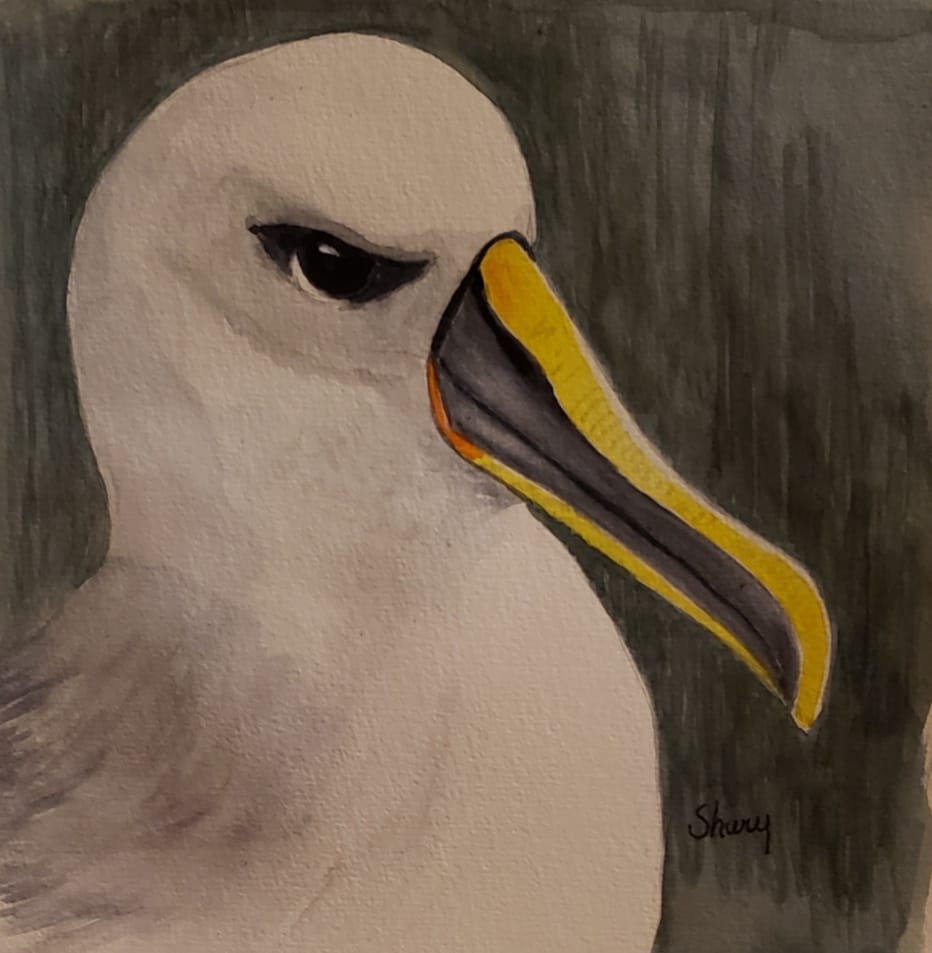
Buller's Albatross, artwork by Shary Page Weckwerth for ACAP; from a photograph by Paul Sagar
Jana Wold (School of Biological Sciences, Victoria University of Wellington, New Zealand) and colleagues report in the journal Emu - Austral Ornithology on genetic differences between Northern Thalassarche bulleri platei and Southern T. b. bulleri Buller’s Albatrosses.
The paper’s abstract follows:
“The Buller’s albatross species complex is composed of two asynchronously breeding subspecies, the Northern Buller’s albatross (Thalassarche bulleri platei) and Southern Buller’s albatross (Thalassarche bulleri bulleri). The aim of this study was to test for genetic differentiation between Northern and Southern Buller’s albatross and to reassess genetic connectivity between these populations. Genotyping-by-Sequencing (GBS) was used to estimate gene flow and genome-wide divergence using 13 T. b. platei and 40 T. b. bulleri samples. The STACKS de novo and reference guided pipelines were used to call single nucleotide polymorphisms (SNPs) for three data sets: one each for Northern and Southern Buller’s and a third for both taxa together. The number of SNPs in each de novo data set was relatively consistent from 12,148 to 11,898 for Northern and Southern Buller’s albatross collections, respectively. A random subsample of 1000 SNPs from each of the two groups indicated that mean per-site nucleotide diversity and heterozygosity were slightly higher for Northern Buller’s albatross (π = 0.335; HE = 0.322) than for either of the two Southern Buller’s albatross breeding colonies (π = 0.286 and 0.294; HE = 0.275 and 0.288). Both STRUCTURE and discriminant analysis of principal components (DAPC) consistently showed differentiated clusters corresponding to Northern and Southern Buller’s but did not resolve population structure among Southern Buller’s breeding populations. These results indicate that an asynchronous breeding season likely limits gene flow between Northern and Southern Buller’s albatross and have important implications for the taxonomic status of Buller’s albatrosses.”
Reference:
Wold, J.R., Robertson, C.J.R., Chambers, G.K., Van Stijn, T. & Ritchie, P.A. 2021. Genetic connectivity in allopatric seabirds: lack of inferred gene flow between Northern and Southern Buller’s albatross populations (Thalassarche bulleri ssp.). Emu - Austral Ornithology 121: 113-123.
John Cooper, ACAP Information Officer, 25 August 2021

 English
English  Français
Français  Español
Español